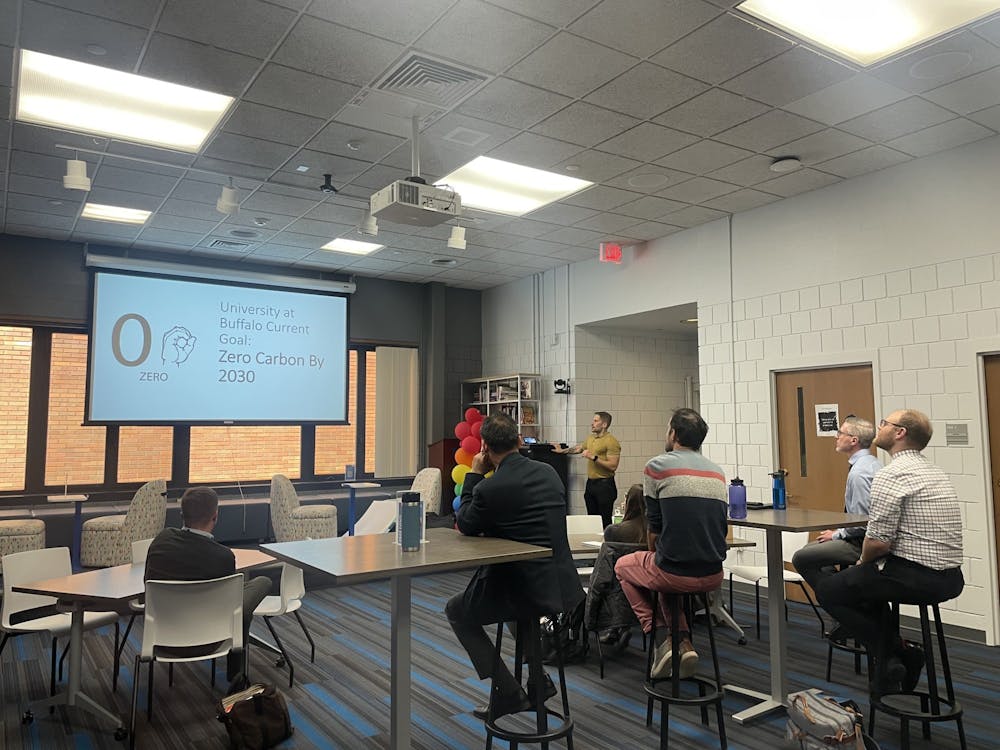Avocados switch their sex on a daily basis, male Dayak fruit bats lactate and mourning geckos, a species of solely females, reproduce asexually.
All these aspects of nature and more were discussed at the UB Intercultural and Diversity Center’s (IDC) Queer Climate Justice event, a discussion about the interconnectedness of the environment and the queer community.
Queer Climate Justice, held April 13, was one of many events hosted by the IDC that took place throughout April in honor of UB’s Sustainability Month and UB’s Pride Week.
Derek Nichols, the associate director for the Office of Sustainability, led the discussion, contrasting societal notions that queerness isn’t the norm with its consistent presence in nature.
Nichols says the lack of inclusive language in our education system is one example of how queerness continues to be stigmatized in society. When studying pollen behaviors of plants, for example, students are taught to refer to the different types as “male” or “female” plants, rather than “pollen-producing” or “pollen-receiving” plants.
Nichols emphasized that a wider understanding of queer identity is needed to ensure that queer communities have access to government resources and environmental relief programs.
“It is necessary to fundamentally challenge the systems of oppression that continue to challenge the environment and our communities,” Nichols’ presentation said.
Nichols also spoke about UB’s Climate Action Plan, which aims to cut the university’s carbon footprint in half by 2030, invest in renewable energy, reduce food waste and implement other sustainable practices.
“Partnerships like this and working with the IDC, the queer community and queer organizations is helpful because internally, as the university gets to its goal of carbon neutrality, we need everybody on deck,” Nichols said.
The sustainability department hopes to expand its slate of programs to include the equity of race, gender, sexuality and more, with a goal of educating both students and faculty.
The event concluded with a look ahead at a queer future.
With speakers such as Michael Knowles (who called for “transgenderism” to be “eradicated from public life” in March) and Riley Gaines (who has outwardly stated she doesn’t believe trans women belong in women’s sports) making on-campus appearances this semester, Nichols called for an LGBTQ+ resource center.
“Other peer institutions of higher [education] have had LGBTQ+ resource center[s]. That would be where students and faculty staff go to get counseling, medication and sexual health services,” Nichols said “Just having a safe space where they know they are protected is something that is super important too.”
Although the IDC — along with the Equity, Diversity, and Inclusion office on campus — support the queer community, Nichols said a separate resource center would show that UB values queer members of the university community.
“We’ve been trying to get this resource center for years, and the more noise and more vocal we can be about it, would be helpful,” Nichols said.
The features desk can be reached at features@ubspectrum.com





